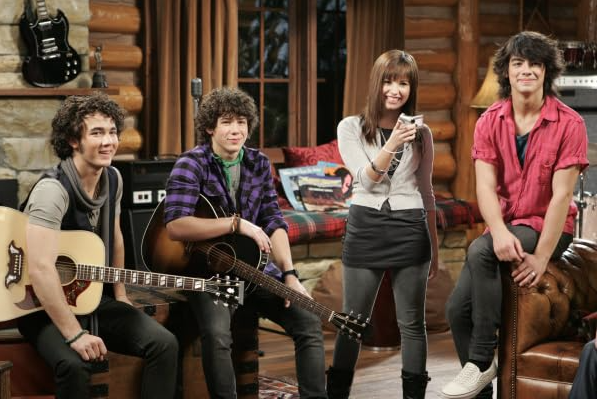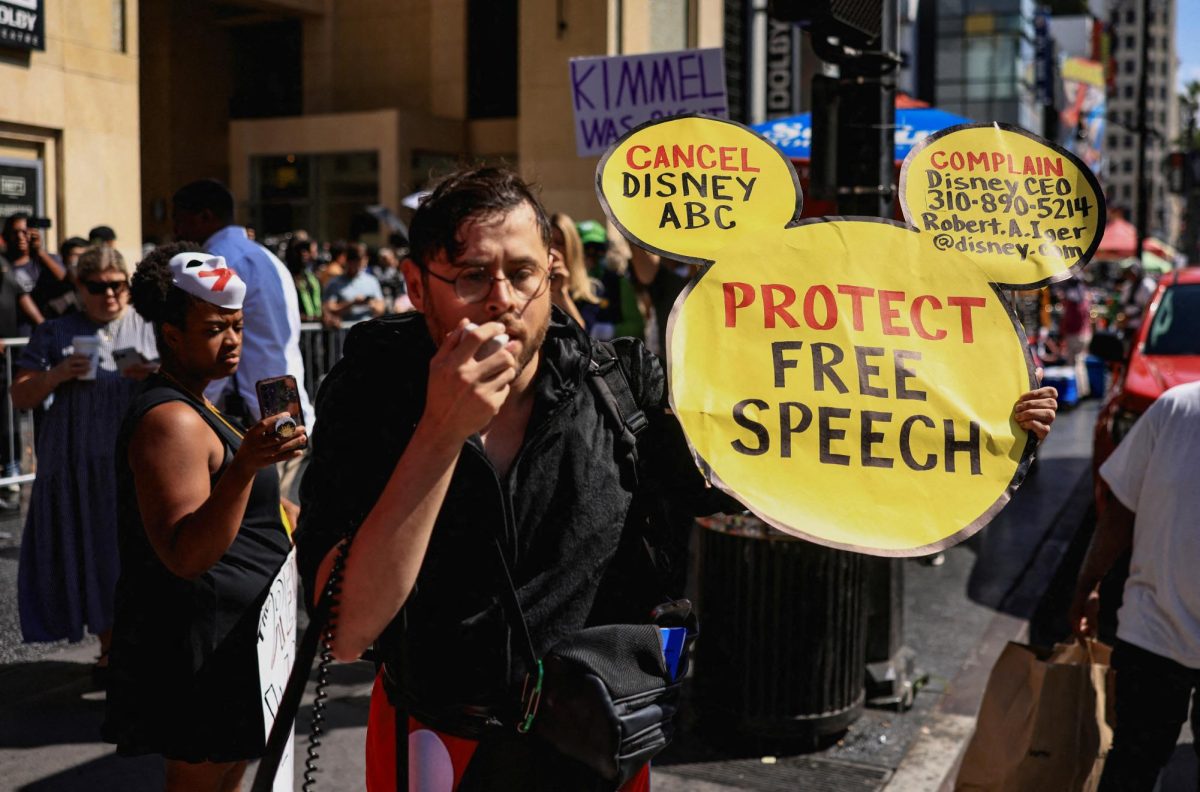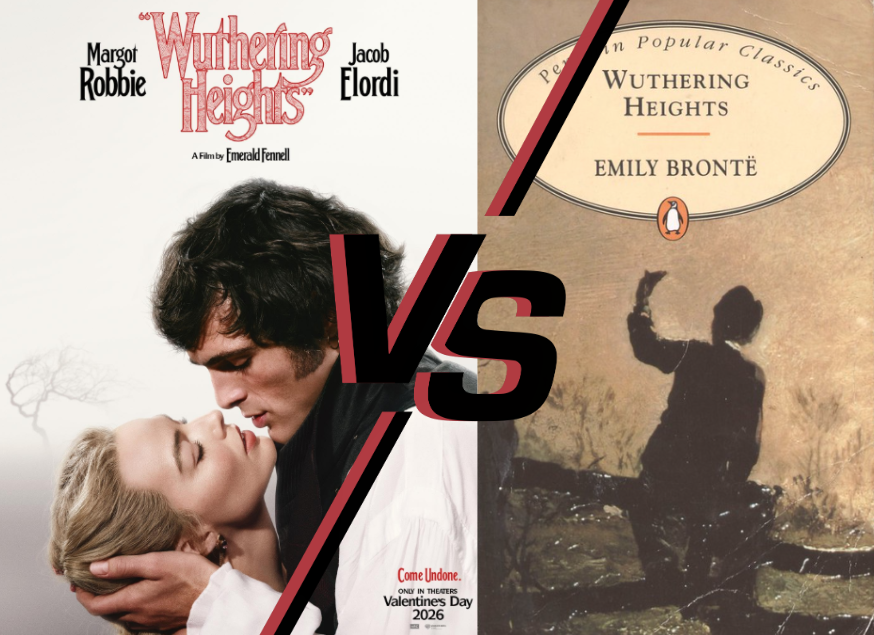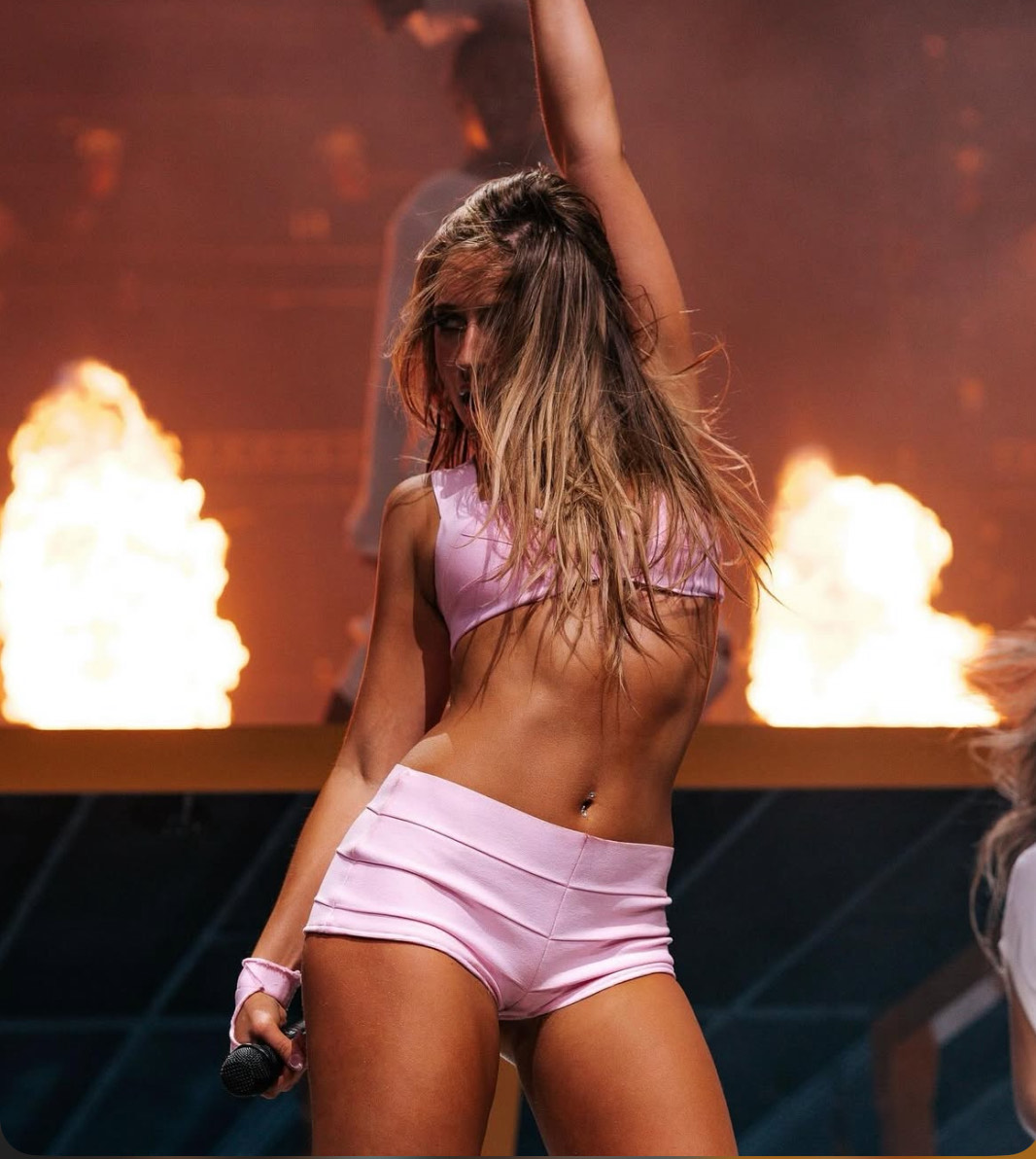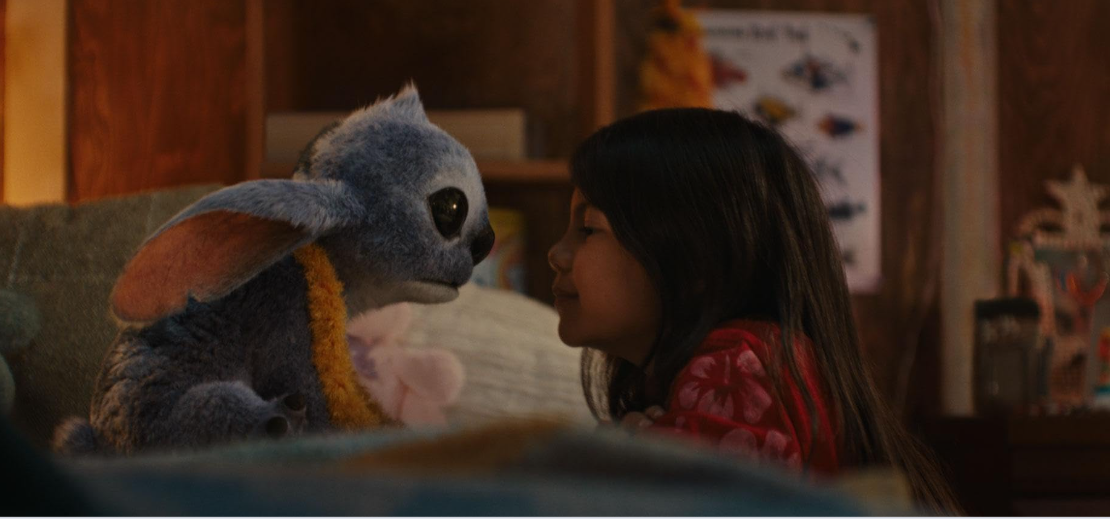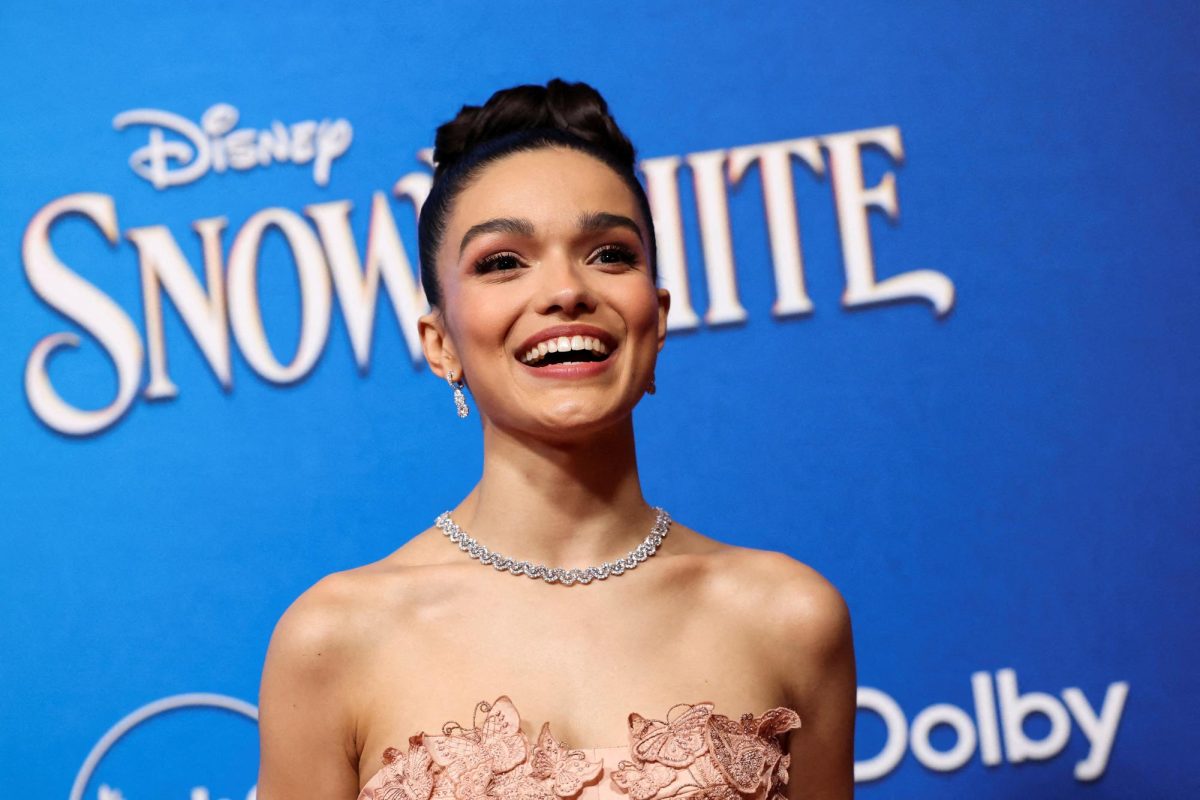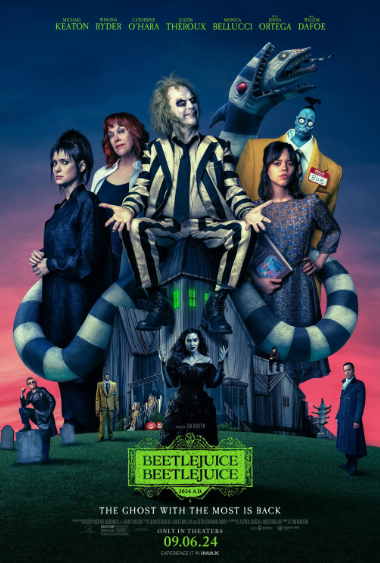
After decades of anticipation, “Beetlejuice Beetlejuice” has finally arrived on Sept. 6, reviving the quirky world of Tim Burton’s 1988 classic. This sequel successfully captures the essence of the original while introducing new characters and a modern twist, making it a must-see for both long-time fans and newcomers.
Set decades after the events of the first film, “Beetlejuice Beetlejuice” follows Lydia Deetz, now a successful artist, portrayed by Winona Ryder. Ryder reprises her iconic role with a depth that reflects her character’s growth and emotional complexities.
The film opens with Lydia grappling with the loss of her mother, a poignant touch that adds weight to her whimsical surroundings. Ryder’s performance shines a light on the nostalgic aspect while still providing an authentic perspective that resonates with audiences.
The film’s premise revolves around Lydia inadvertently resurrecting the mischievous spirit Beetlejuice, played once again by Michael Keaton.
Keaton’s return to the role is nothing short of spectacular. He embraces the character’s chaotic energy and dark humor, infusing Beetlejuice with both menace and charm. Keaton’s comedic timing and improvisational skills shine, making his scenes some of the most memorable in the film. The dynamic between Lydia and Beetlejuice evolves, showcasing a mentor-mentee relationship that drives much of the plot.
Adding to the film’s appeal is Jenna Ortega, who plays Lydia’s daughter, Astrid Deetz, a character who struggles with her identity and familial expectations. Ortega’s outstanding acting skills and trendy appeal draws a younger audience to the film and creates more of an allure.
Ortega’s performance is compelling; she embodies the angst of youth while connecting deeply with her character. The interplay between Ryder and Ortega creates a powerful emotional core that complements the film’s eccentricities.
Visually, the movie “Beetlejuice Beetlejuice” stays true to Burton’s signature style. The production design is vibrant and surreal, filled with imaginative sets that echo the strange world of the afterlife. Cinematographer Philippe Rousselot captures the film’s aesthetic with striking visuals that enhance the whimsical tone. The special effects blend practical and digital techniques, resulting in a visually captivating experience that honors the spirit of the original while embracing modern technology.
Critics have noted the film’s clever script, penned by the original creators alongside new writers. The humor is sharp and often self-referential, poking fun at the film industry and the passage of time. This meta-commentary, combined with clever nods to the original film, adds layers that keep audiences engaged, no matter how old they are.
“Beetlejuice Beetlejuice” has attracted significant buzz not just for its nostalgic elements but also for its relevance in today’s cultural landscape.
Themes of loss, identity and family bonds resonate strongly, making the film relatable to a contemporary audience. The movie balances humor and heart, ensuring it appeals to a wide demographic of viewers, from die-hard fans of the original to a new generation discovering the story for the first time.
The film has already seen box office success, likely due to its well-timed release, coinciding with a resurgence in interest in 1980s and 1990s nostalgia and the Halloween season approaching. Social media buzz and promotional events featuring the cast have amplified excitement, leading to packed theaters and enthusiastic reactions.
“Beetlejuice Beetlejuice” successfully revitalizes a beloved classic while introducing fresh perspectives and characters. With standout performances from Ryder, Keaton and Ortega, the film balances humor and emotion through Burton’s distinctive visual flair. For anyone seeking a unique cinematic experience that blends nostalgia with modern storytelling, “Beetlejuice Beetlejuice” is a must-see.

